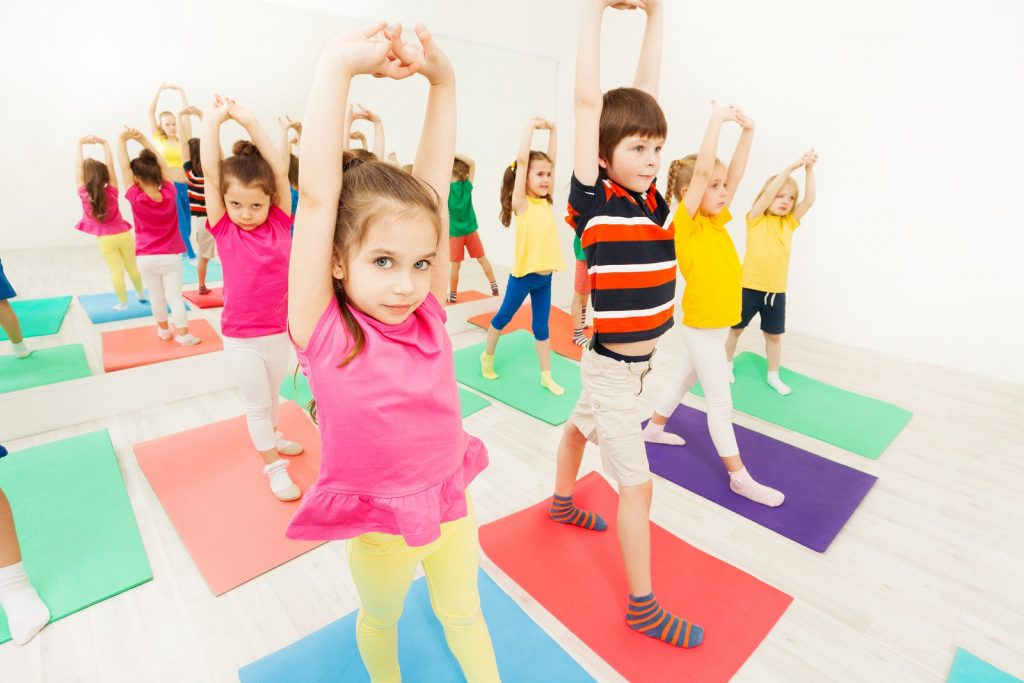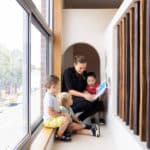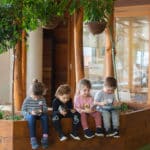Physical activity is vital for a child’s development and lays the foundation for a healthy and active life. Early childhood services are ideally placed to foster the development of good physical activity habits early in life and to encourage families to engage in regular physical activity.
ToBeMe offers a wide choice of play-based, physically active learning experiences that link to children’s interests, abilities, identity and prior knowledge.
Physical activity in childcare needs to be made up of both structured physical activity and unstructured, spontaneous activity. ToBeMe makes available a sports gym, which provides life lessons that can be introduced to children.
In addition, as active role models, educators can encourage children to participate in physical activity so as to understand and explore the body in motion and children’s relationship with food and motion and rest.
National guidelines
Infants
- For healthy development in infants (birth to 1 year), physical activity – particularly supervised floor-based play in safe environments – should be encouraged from birth.
Toddlers and preschoolers
- Toddlers (1 to 3years of age) and pre-schoolers (3 to 5 years of age) should be physically active every day for at least three hours, spread throughout the day.
- Children aged 2 to 5 years should spend less than 1 hour per day sitting and watching television and using other electronic media (DVDs, computers and other electronic games).
- Children younger than 2 years should not spend any time watching television or using other electronic media (DVDs, computers and other electronic games).
Physical activity and play
What is play? Play is simply having fun, the spontaneous activity of children. Play encompasses many things—it can be done with the body (running, jumping, dancing); and the mind (fantasy play); props (building blocks, pushing a toy). Play is fuelled by curiosity and is driven by it. Play begins simple and grows more complex as the child grows.
Research shows that physical learning environments have a huge role to play in affecting behaviours. Our architect-designed centre facilities have been designed so children’s physical by award –winning architect Sarah Scott.
Family activities
There are so many non-structured ways to encourage children to be active, and many of these can involve the whole family. If you’re looking for ways to get active with your family, why not try the following:
- Walk to ToBeMe together
- Visit the beach with a bat/ball and Frisbee
- Take the dog for a walk
- Visit the local swimming pool
- Go to the park with a footy and play equipment
- Ride your bikes to a favourite local picnic spot
- Organise a local walk – The Bay Run
- Find outings that involve walking – visit the zoo or a museum
- Do a community walk (e.g. a fun run/walk)
- Choose presents for children that encourage activity, for example, kites, outdoor equipment or gift vouchers to activity parks and centres
ToBeMe Early Leaning’s Approach to Physical Activity
Spontaneous
Spontaneous play is less restricted and often made up on the spot by those playing. It can include such things as playing alone or with friends and family, imaginative play, walking, dancing to music, or playing.
Organised activities
Organised and structured sports form a part of children’s lives through to adulthood. Once children start school they participate in various sporting options that are available to them including swimming, martial arts, dance, athletics, football and nippers.
Organised activities introduce many benefits to a child’s world including fair play, team work, respect, competition and achievement. Having the influence, knowledge and skills of professional coaches and trainers also has a positive influence on a child’s world.
ToBeMe Early Learning has a dedicated gymnasium with qualified sports instructors/coaches who attend the centre daily to take the children through a variety of structured physical activities.
In Room Physical activities
ToBeMe provides organised and structured physical movement, which forms a part of each child’s day, through play and discovery in our class rooms. In our learning environments our cubby area and stage area encourage movement and co-ordination through playing alone or with friends, imaginative play, or dancing. This also develops children’s self-esteem, thinking skills, social interactions and emotional skills.
Rest at ease knowing that the sports gym at ToBeMe and our outdoor play areas are a recognised part of the learning programs at ToBeMe Early Learning centres. To talk to an educator at ToBeMe about our Sports Gym, or for information about enrolment in one of our Early Learning Centres, contact us today.
References
- Overweight and Obesity in Australia [Internet]. Canberra: Department of Health and Ageing; [updated Oct 2011; cited Oct 2011]. Available from: www.health.gov.au/internet/healthyactive/publishing.nsf/Content/overweight-obesity
- Get Up & Grow: Healthy eating and physical activity for early childhood [Internet]. Canberra: Department of Health and Ageing; [updated Aug 2011; cited Oct 2011]. Available from: www.health.gov.au/internet/main/publishing.nsf/content/phd-early-childhood-nutrition-index
- Healthy kids: Why is physical activity important in early childhood services for infants and young children? [Internet]. Canberra: Department of Health and Ageing; [updated Aug 2011; cited Oct 2011]. Available from: www.healthykids.nsw.gov.au/teachers-childcare/physical-activity.aspx
Comments are closed.






